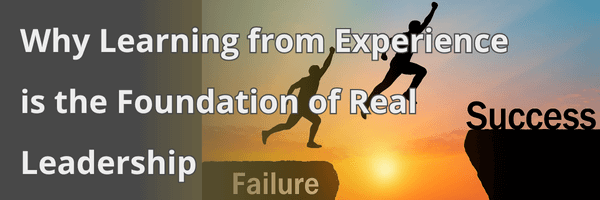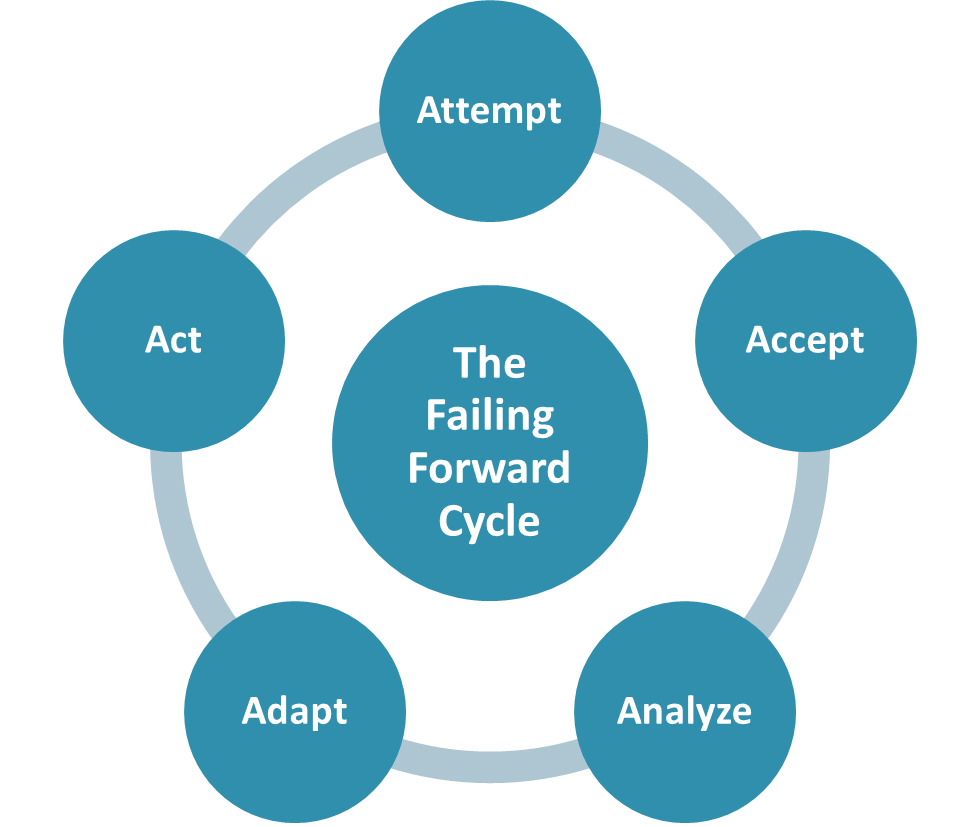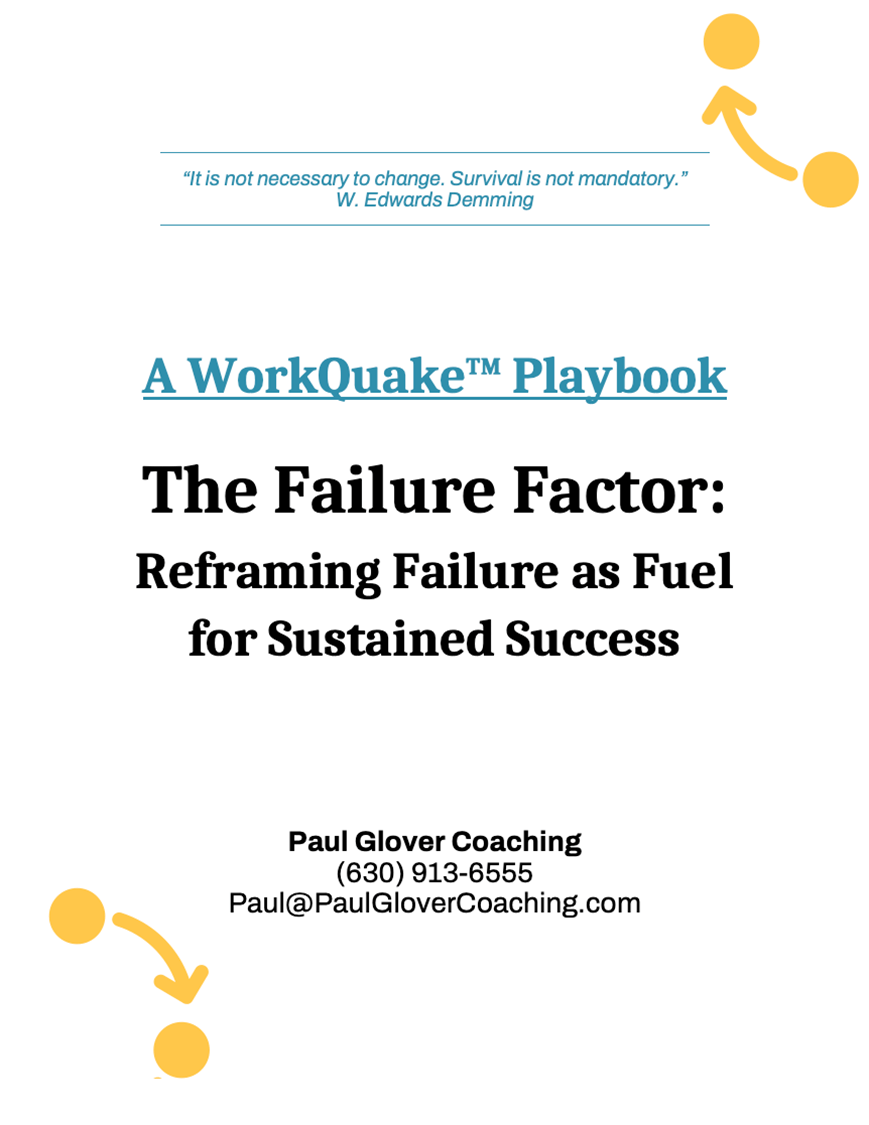Fail Forward: Turning Setbacks into Stepping Stones Webinar Recap

The latest session in the NFFS Next-Gen Webinar Series, “Fail Forward: Turning Setbacks into Stepping Stones,” offered an in-depth look at how leaders can transform mistakes into momentum. Led by Paul Glover, The No B.S. Executive Coach, the webinar challenged emerging and established leaders alike to rethink their relationship with failure and to adopt a structured approach for learning, adapting, and leading more effectively.
Glover’s central argument was clear: failure and success are equal partners in every leader’s journey. A leader who never fails is not avoiding mistakes, he said. Instead, that leader is likely avoiding risk, avoiding growth, and avoiding the uncomfortable work of change. In today’s volatile and uncertain environment, that avoidance is far riskier than failure itself.
Why Failure Must Be Rethought
According to Glover, many organizations adopt a rigid, punitive definition of failure that equates mistakes with incompetence. When failure is treated as unacceptable, people withdraw. They become less innovative, less engaged, and less willing to challenge existing processes. They hide what went wrong, blame others, cling to the status quo, and stop taking initiative altogether.
This mindset, Glover argued, is one of the biggest barriers to leadership development. Leaders grow through reflection, not perfection. When failure becomes a source of shame or fear, the learning stops.
He offered a simple but powerful definition of failure that removes stigma and creates clarity:
Failure is not meeting expectations.
Expectations may be explicit or unspoken, but they are always present. Defining failure in this neutral way allows leaders to examine what happened without personalizing or catastrophizing it.
Three Types of Failure Every Leader Must Understand
To help leaders diagnose what went wrong and why, Glover identified three distinct categories of failure.
- Unforced Errors
These are preventable mistakes that stem from bad assumptions, broken processes, lack of training, or carelessness. Leaders have direct control over this category. Reducing unforced errors requires improving systems, clarifying expectations, providing adequate training, and establishing non-negotiable standards. - Intelligent Failures
These occur when leaders and teams take calculated risks designed to create improvement, innovation, or new opportunities. Intelligent failures are intentional and thoughtful. They are the byproduct of experimentation, testing, and pushing beyond the comfort zone. Glover explained that a small but meaningful amount of failure is necessary for sustainable success. If you are not failing at all, you are not stretching far enough. - Uncontrollables
These are failures caused by factors outside a leader’s control, such as economic shifts, weather, or global disruptions. Attempting to fight the uncontrollable wastes time and energy. Effective leaders focus on what they can influence: process, communication, culture, systems, and behavior. Understanding these three categories allows leaders to respond more strategically instead of reacting emotionally.
The Art of Failing Forward: A Leadership Framework
- Acceptance
The cycle begins with acknowledging that a failure has occurred and accepting one’s role in the outcome. Acceptance includes recognizing the emotional impact of failure. Leaders who avoid this step never move past defensiveness or blame, and the learning process stalls. - Analysis
Once emotions have been addressed, leaders shift to objective analysis. This means examining what happened, debriefing with the team, gathering feedback from those affected, and identifying flawed assumptions, broken systems, or missing resources. Glover emphasized that analysis must be fact-based and free of personal judgment. - Adaptation
From the analysis comes adaptation. Leaders revise assumptions, adjust processes, modify strategies, or shift resources based on what they learned. In some cases, adaptation means making the difficult decision to stop a project entirely and redirect energy elsewhere. - Attempt (Try Again)
The final stage requires leaders to re-engage. Adaptations lead to a new attempt, ideally through a small pilot or micro-experiment. This step is difficult because it requires stepping back into uncertainty after experiencing a setback. But without a renewed attempt, there is no growth, and failure becomes final instead of formative.
Glover underscored that this entire cycle is both personal and collective. Leaders must move through these stages individually, but they must also guide their teams through them. When leaders model accountability, transparency, and learning, teams feel safe enough to take thoughtful risks and share candid insights.
Why This Matters for Today’s Leaders
 Throughout the session, Glover reiterated that leadership today is being shaped by volatility, shifting workforce expectations, and rapid change. In this environment, the status quo is fragile. Leaders who cling to comfort will struggle, while leaders who adopt a fail-forward mindset will be prepared to adjust, innovate, and strengthen their organizations.
Throughout the session, Glover reiterated that leadership today is being shaped by volatility, shifting workforce expectations, and rapid change. In this environment, the status quo is fragile. Leaders who cling to comfort will struggle, while leaders who adopt a fail-forward mindset will be prepared to adjust, innovate, and strengthen their organizations.
He emphasized that failure is not a sign of weakness. It is a sign of movement. It signals that a leader is trying, experimenting, stretching, and seeking growth. The real threat is not failure. The real threat is stagnation.
Glover left participants with an essential reminder:
What got you here will not get you there.
The environment is evolving. Customers are evolving.
Teams are evolving. Leaders must evolve too.
Failing forward gives them a way to do exactly that.
Send an e-mail to Paul with the subject line "Workbook" to receive his Free Playbook Workbook.
